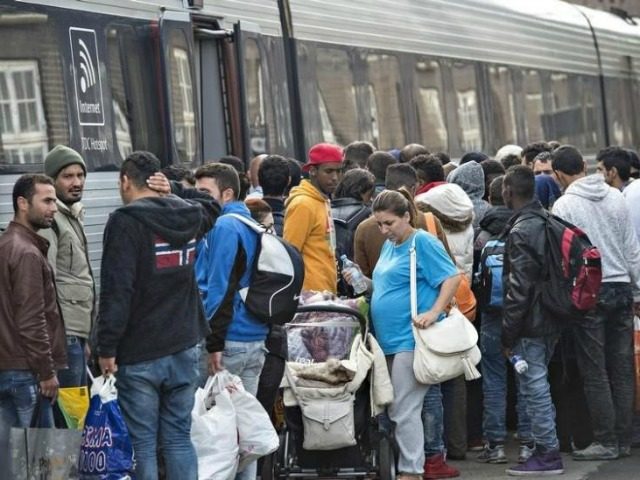The chairman of SKL, which represents Sweden’s municipalities and county councils, has warned the country could be facing a new migrant crisis due to so-called “family reunifications” — chain migration — saying the influx could rival 2015.
Anders Knape warned that the Swedish municipalities may not be able to handle the costs of so many new migrants taking residency in Sweden as part of the family reunification programme, and, according to a report in the newspaper Aftonbladet, said, “[Sweden is] facing the second wave of refugee reception, the family migration. As we don’t know how big it gets. It can be extremely powerful and mean that we are approaching the figures we experienced in 2015 and 2016.”
“Much of the family migration will end up, at least initially, in places that already have a strained situation,” Knape explained. Several municipalities in Sweden are already feeling the effects of mass migration, with some leaders, such as Urban Hansson Brusewitz, head of the National Institute of Economic Research (KI), saying that the local governments could be forced to raise taxes as a result.
Fredrik Söderberg Bruce, Head of Press at the Migration Board, resisted Knape’s claims, however, saying: “In 2019, we estimate that approximately 27,000 people will be received in the country’s municipalities, then reduce to about 20,000 people in 2020 and 2021. This can be compared with 2016 and 2017 when approximately 68,000 people were received in the country’s municipalities annually.”
Knape responded that, while he did not want to mislead people, the Migration Board had also been wrong in the past: “The regulations facilitate family migration. This may mean that over time, a large group will come and we must be prepared for it in our operations,” he explained.
Sweden, with a population of only around 10 million, is expected to receive far more family reunification migrants this year, with Swedish Minister of Migration Morgan Johansson arguing that the increase would be good for integration efforts.
“I think it is a very good humanitarian measure, it is about 90 percent women and children who have long lived in refugee camps who can now be reunited with their father or husband in Sweden,” Johansson claimed.

COMMENTS
Please let us know if you're having issues with commenting.